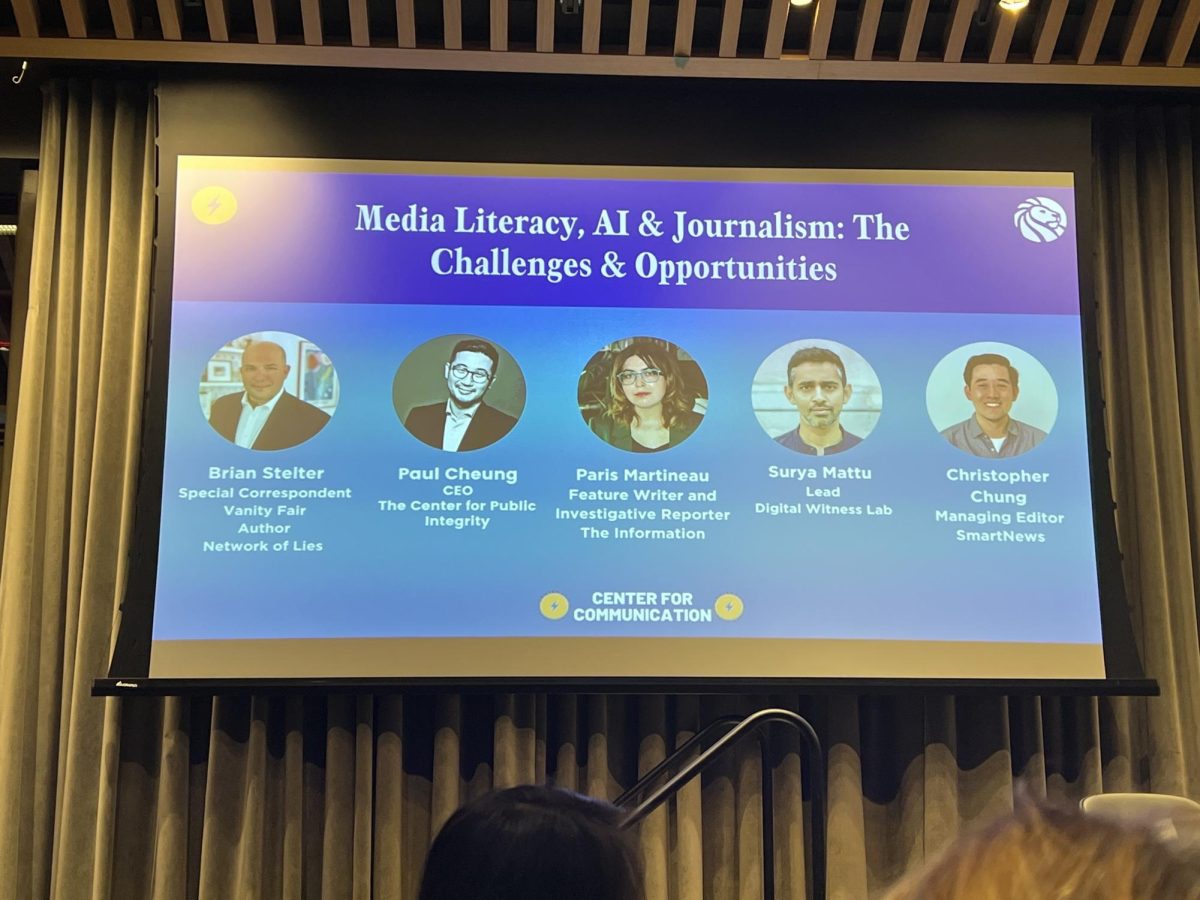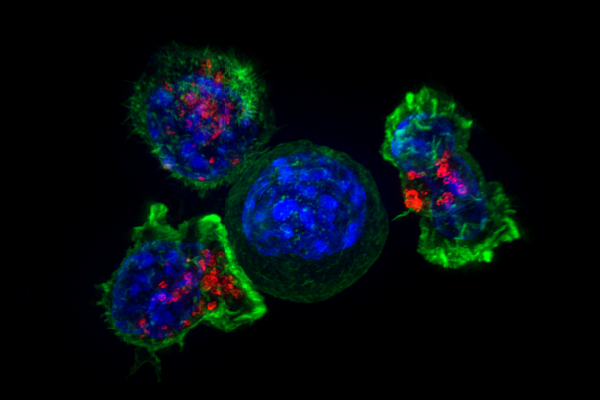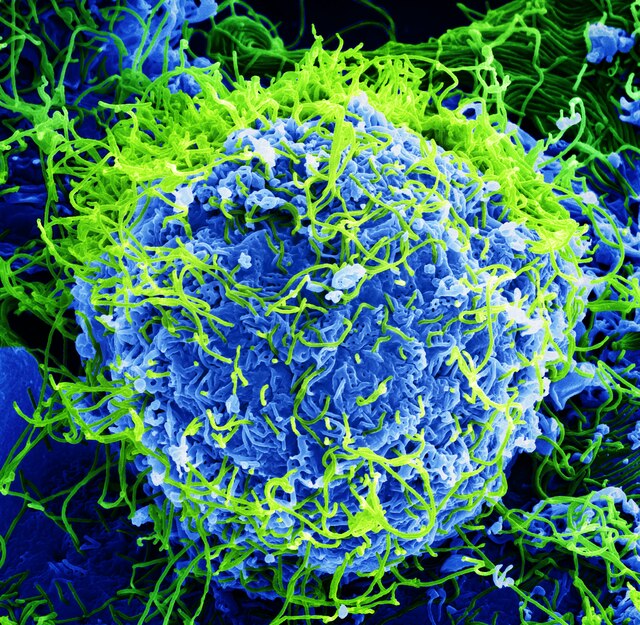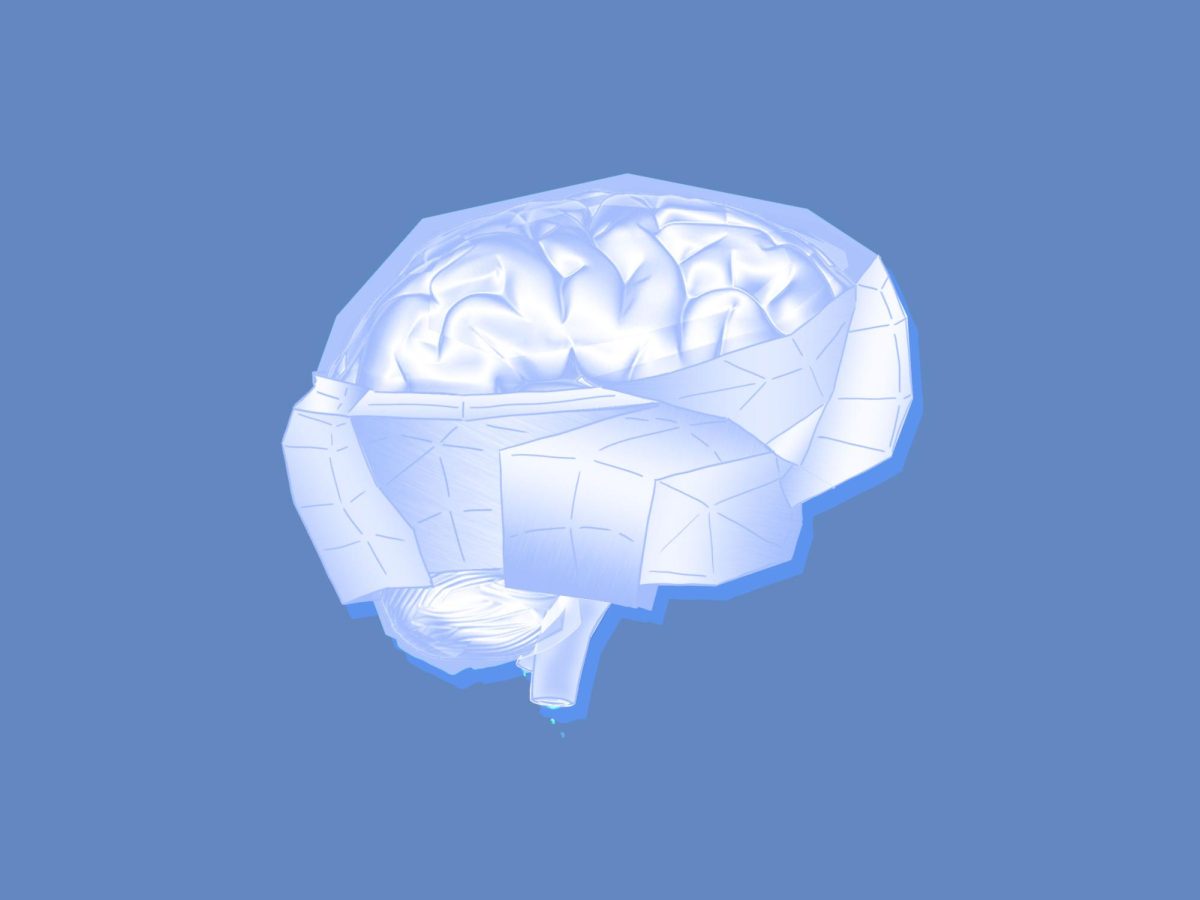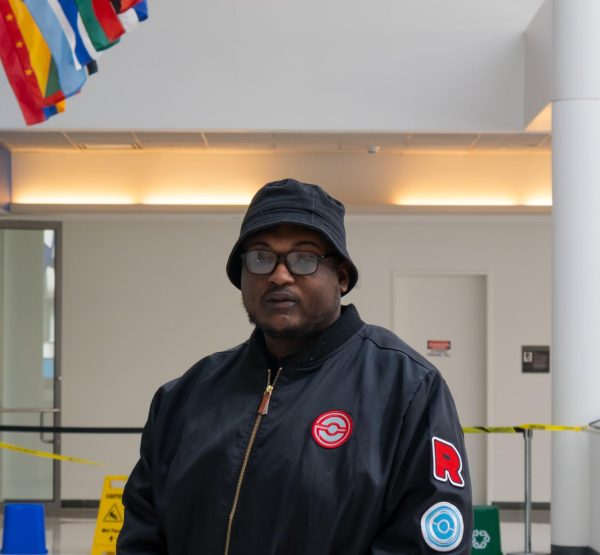A panel discussing how artificial intelligence forces journalists to re-evaluate how they report was held at the Stavros Niarchos Foundation Library on Oct 23. The conversation covered many aspects of how technology and journalism are blending at a rapid rate.
This panel was put together in collaboration with The Mayor’s Office of Film, Theatre & Broadcasting and Stavros Niarchos Foundation Library, where the event was held. Vanity Fair’s Special Correspondent and former CNN host of “Reliable Sources”, Brian Stelter served as the moderator for the discussion.
The night began with introductions from the panelist.
Some of the speakers included The Center for Public Integrity CEO Paul Cheung, Investigative Journalist Paris Martineau, who currently works for The Information, where she covers power and influence in the tech industry, Surya Mattu, investigative data journalist and current lead for the “Digital Witness Lab” at Princeton University and Smart News Managing Editor Christopher Chung.
During the panel, Cheung talked about the relationship between AI and the investigative journalism field. Cheung made the argument that investigative journalism will always remain and that AI could advance the field.
“Investigative journalism cannot be replaced by algorithms,” Cheung said. “But with AI, it could definitely expedite the way we think about journalism.”
Stelter told a story about how he was fearful of his use of AI as he was trying to write a book. He spoke on being fearful of plagiarism and he wanted to ensure that the words being written were his own words.
Later into the evening, the panel turned into a Q&A session, where attendees were allowed to pose questions to the panelists.
The panelists were asked if AI was always going to require a need for humans as the technology continued to advance and become more accessible to everyday people. Martineau began to answer by stating that humans would still be needed.
“Like almost certainly, I think that there’s always going to be people within the AI and tech world that say you can operate totally autonomously and that hyper intelligence is the solution to all of our problems,” Martineau said. “But ultimately, tools made by people for people are going to require people, especially when put to use in an informational context like journalism.”
Mattu added that rather than humans being needed to maintain AI use, this vast utilization of AI can encourage people to learn new technical skills.
“I would add to that I think the thing that’s changing isn’t that humans aren’t going to be needed, it’s that we want to keep learning new skills,” Mattu said. “That’s something that’s changing at a pace that we’re not used to from previous generations, but things change so fast. You just need to keep up with it. But once you have a base level understanding, I think it’s actually easy to keep up with the incremental changes.”
Each of the panelists ended the night with final words regarding the state of journalism. Mattu encouraged attendees to be open to learning new skills with an open mindset.
“Play with them, learn how they work and empower you,” Mattu said.
In regard to technology, Cheung told the audience to be aware of the advancement of the fast growing industry.
“Technology is not someone else’s problem,” Cheung said. “It is all of our problems. So be informed and be ready to engage.”
Cheung told the audience that the one thing to take away from the conversation is to support local journalism.
“One thing you just take away is to read the news, subscribe to your paper and be a very critical reader,” Cheung said.


